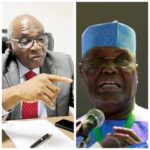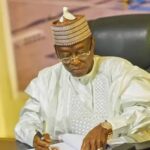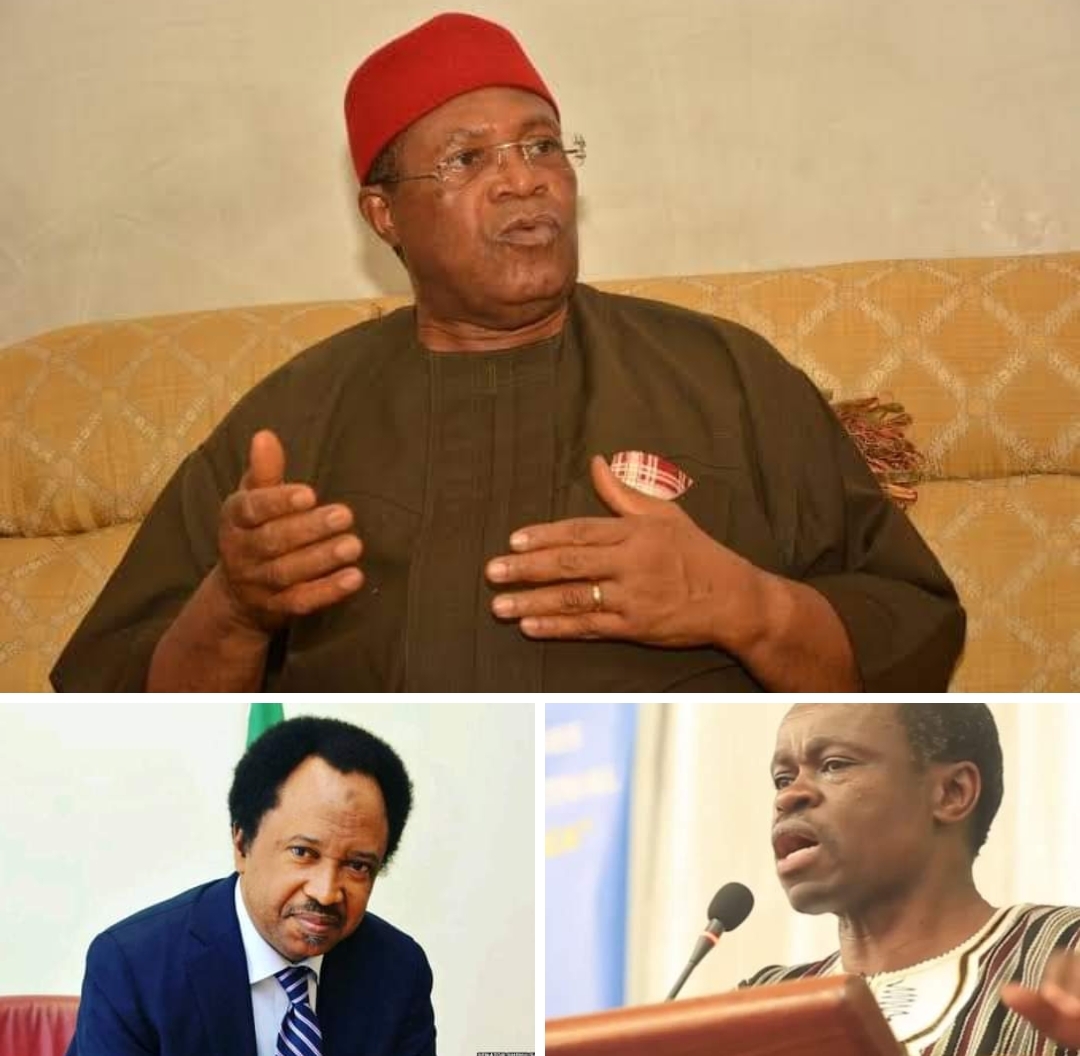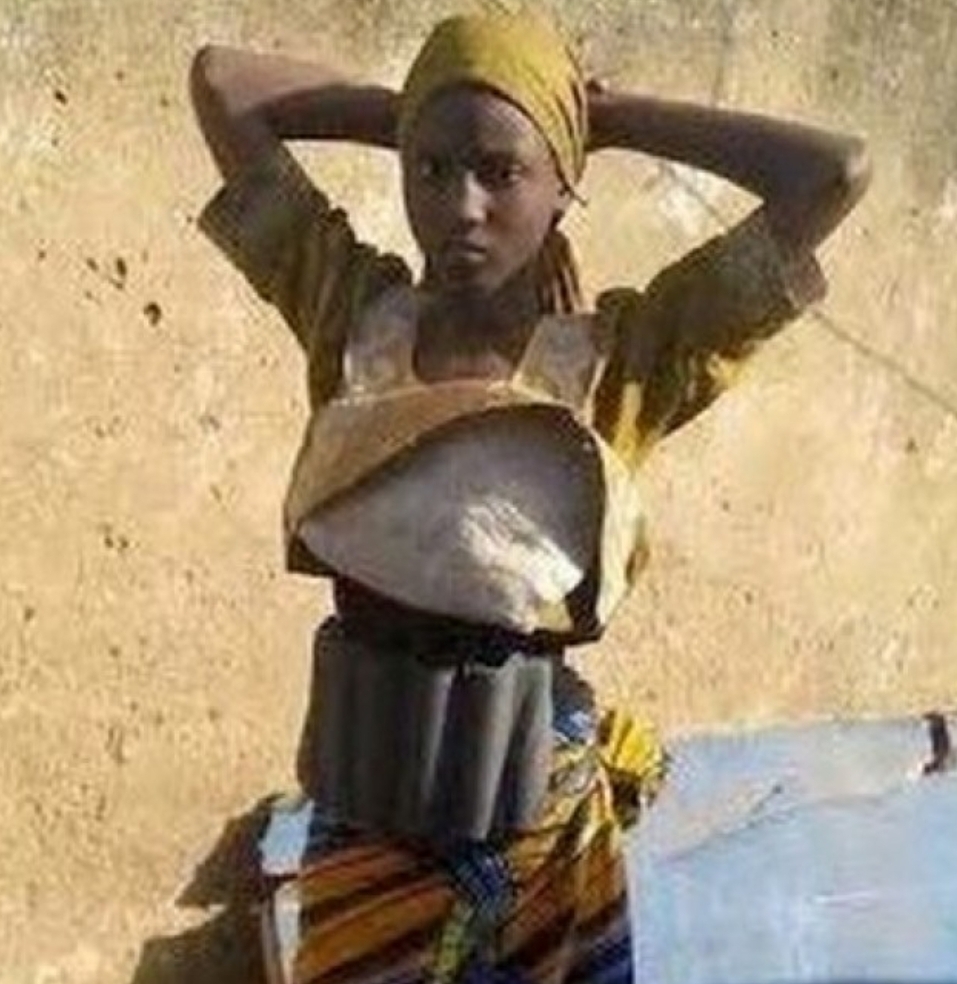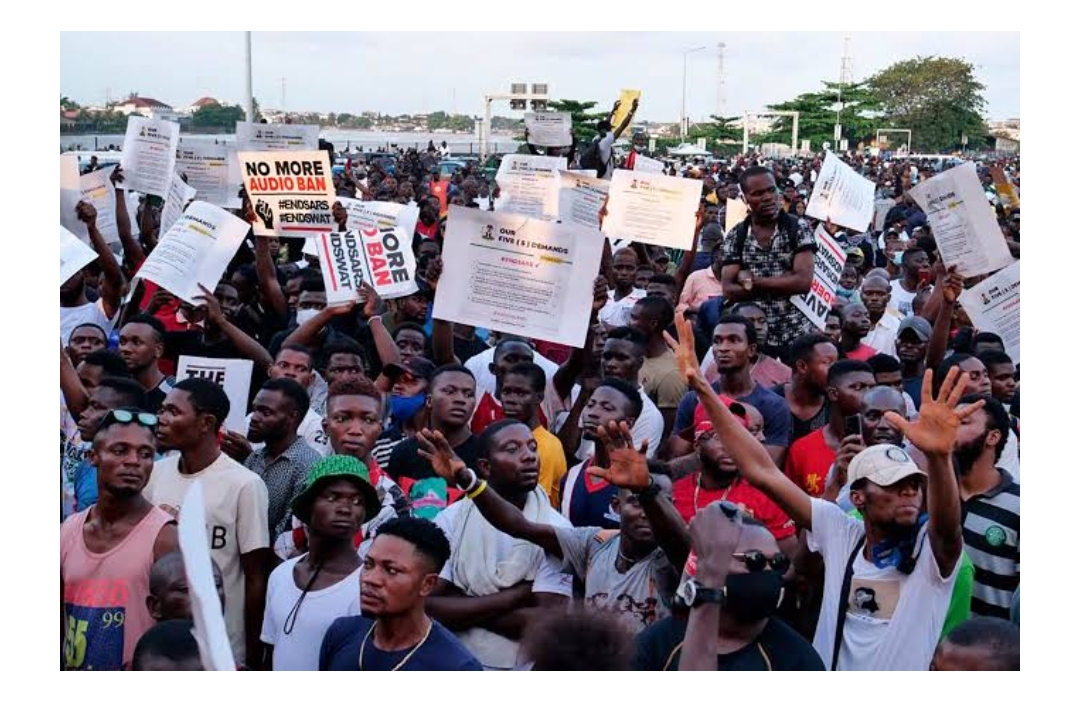Having blazed the trail with the scorecard of the administrators in each of the nation’s geo-political zone, LEADERSHIP Scorecard’s Colin Kainene takes an in-depth look at the performance of the governors in North Central Nigeria.
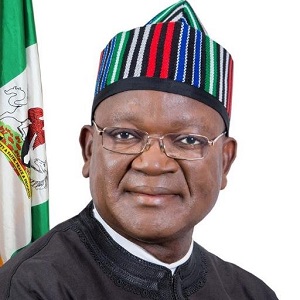
Benue: Still searching for stability after the storm
From his ascendance into office till date, Governor Samuel Ortom has had to deal with several home-made demons – insecurity, food scarcity and the herdsmen-farmers’ clash, in no particular order – and suffice it to say that he has only enjoyed some form of stability in his second tenure.
Benue may not be one of Nigeria’s elite states economically and commercially but, under Ortom, he has managed to pull a few nuts out of the fire.
Agriculture:
Ortom’s agro-industrialisation has seen activation of the Central Bank of Nigeria (CBN)’s Anchor Borrower’s Programme for the massive production of rice, sesame and soya beans. The programme earmarked about N7billion to be given to small-scale farmers in the state.
To help the programme lift-off to a successful start, Ortom constituted and inaugurated a technical committee made up of seasoned agriculturists drawn from the State Ministry of Agriculture, the Bank of Agriculture (BoA), CBN, representatives of participating commercial banks, representatives of the farmers’ umbrella body and MIKAP representative, under the supervision of the Commissioner for Agriculture James Anbua.
Clusters of 10-15 beneficiaries opened accounts with minimum of N12,000, with BOA or any of the participating banks with three of its officials as signatories, and then open individual accounts with a minimum of N2,000 and N1,000 for loan application form.
Ortom’s administration embarked on massive rehabilitation of all dilapidated structures at Akperan Orshi College of Agriculture Yandev, signed MOUs with foreign investors to overhaul the State Agric Training Schools at Mbatie in Buruku and Otobi and converted them to agricultural training institutes for practicing farmers.
During the flag-off of the 2016 farming season, the State Ministry of Agriculture, in conjunction with Nigerian Institute for Oil Palm Research (NIFOR), raised over N50,000 oil palm seedlings for sale to members of the public at subsidized rate.
A few other milestones for the administration in the sector include the evolvement of a new policy for procurement of fertilizer at highly subsidised rate to Benue farmers and signing of agreement with Torra KFT for the completion and take-over of the Wannune Tomato Factory.
Education – Prior to the coming of Ortom’s administration, the state was unable to access its UBEC intervention funds between 2012 and 2015.
The state administration has been able to access over N7.6 billion from UBEC and embarked on massive construction (of VIP toilets, headmaster’s office, store, drilling of boreholes) and renovation of classroom blocks in 740 schools and handed over to the Benue State Universal Basic Education Board (SUBEB), while some are at various levels of completion.
The focus on basic education has also extended to dilapidated secondary schools – most of which were destroyed during the violence between herdsmen and farmer – with no less than 64 government secondary schools renovated and completed.
To improve adult literacy in the state, the Ortom administration renovated the office of the Agency for Adult and non-Formal Education.
Some of the schools constructed and renovated by the Ortom administration include St. Patrick Primary School, Aokpe, Okpokwu LGA; LGEA Primary School, Okpodu, Okpokwu LGA; LGEA Pilot Primary School, Ainu, Igede, Oju LGA; LGEA Primary School, Ogene Center, Ohimini LGEA; RCM Primary School, Ayila, Egba, Agatu LGA; MPS Upu-Icho, Otukpo LGA; LGEA Primary School, Obijagor, Obi LGA; RCM Obu1, Ogbadibo LGA; Pilot Primary School, Okwutungbe Into, Obi LGA; St Mary Primary School, Ogobia, Otukpo LGA; LGEA Primary School, Aokpe, Okpokwu LGA; LGEA Primary School,Ogbilolo, Ado LGA; LGEA Primary School, Olukpo, Ado LGA, etc,.
The icing on the cake would seem to be the retraining of 16,000 teachers in 2016, to improve and encourage practical. More interesting is that, four years later, Ortom’s administration has approved the recruitment of 5,000 primary school teachers to fill the existing vacancies in the sector.
Health – Benue has always been one of the states grappling with a HIV/AIDS contraction rate. To this end, in 2018, the Benue State Agency for the Control of AIDS (BENSACA), in conjunction with the USAID, organized quarterly HIV community outreaches in local governments in the state, procurement of test kits for free tests. The state government made available a quarterly financial provision as part of its $180,984 USD pledge.
In June 2020, Ortom signed into law a bill for the establishment of Benue State Health Insurance Scheme to facilitate the establishment of the State Health Insurance Agency, saddled with the responsibility of helping the state’s most vulnerable (aged, poor, disabled etc.,) pay for insurance services.
Infrastructure – Following the obtaining of a N10 billion infrastructure facility and mobilisation of contractors back to site for the completion of 11 abandoned road projects across the state and award of contract for two new ones, several road networks have come to be, a few amongst them being the 46.52km-Zaki Biam – Afia – Gbeji Road , the Taraku – Naka – Agagbe road (61km), Oju – Obussa – Utonkon road (52 km), Otukpo – Utonkon – Igumale road (55.61km), Oshigbudu – Ogbaji road (10km), Igbor – Ikpa – Wannune road (36.732k), Vandeikya – Koti-Yough – Adikpo road (32 km), Ge – Ikyobo – Agbeede – Amua – Anshagba road (37km), Tordonga – Zaki Biam with spur to Tsewuaze – Tiza – Shila road (45.14km), Daudu – Gbajimba road, Achusa Welfare Quarters Road, Mobile Police Barracks – Yaikyo – Apir road (24km), Origbo – Imande – Akpur – Gbajimba road (40. 397km).
Since dusting off itself from the violence between the herdsmen/farmers and kidnapping, the Ortom administration has re-engaged with development partners, UN, UNHCR, UNFPA, World Bank, IFAD, USAID for the provision of education, health services and other projects. Also, it has signed MOU with Chinese, German, American and other investors on infrastructure, paying over N5.5Billion counterpart fund to local and international development partners.
Water supply – The Ortom administration has restored water supply to Otukpo and Katsina-Ala, with the payment of N900 million to contractors; reticulation of water in Makurdi and execution of 116 water projects in Tarka, Konshisha, Oju and Ogbadibo through BERWASSA.
Although the state government said it had raised the monthly IGR from about N250million to N500million monthly, the state remains outside of Nigeria’s top 10 IGR generators and still grapples with financing its internal projects.
Ortom has not performed exceptionally but, given that most – if not all – the IDPs in the region have found refuge in the state, it does say something about how much commitment is made to safety and the degree of humanitarian work going in the state.
Ortom’s tenure will be up in 2023, seeing as he would have completed his eight-year term in office and give way for another. That said, in all honesty, he came in with a lot of promise but has remained more than a few centimetres short on the promises he swept into office with.
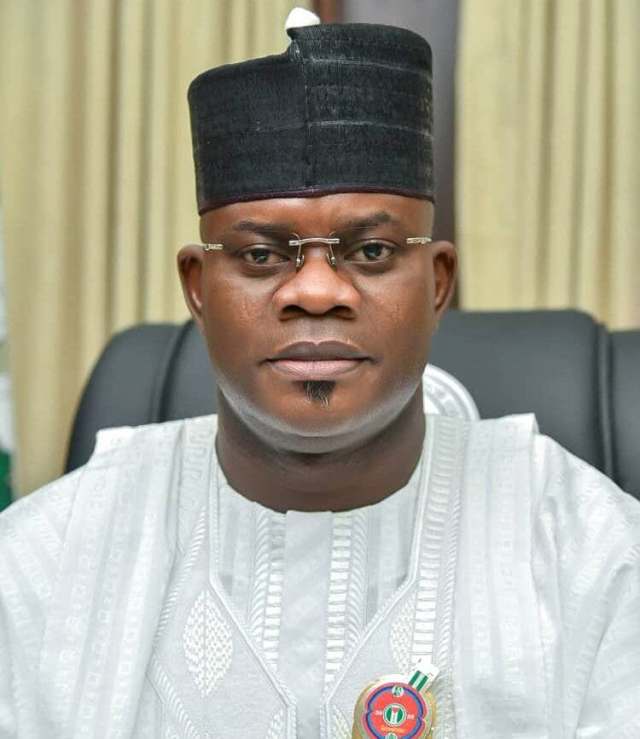
Kogi – Will Bello come of age?
Governor Yahaya Bello has been in the news for all sorts of reasons. Away from the limelight, how has he fared as governor?
His first four years were easily understandable, given that he was – for the want of a better word – a greenhorn. Following his re-election, more was expected. For a state which prides itself as one of Nigeria’s food baskets, how much has it done to ensure that tag holds up?
Security – Before Bello assumed office, insecurity in the state was at the apex. Robbery and kidnapping were perpetrated with reckless abandon. Travellers passing through Ibillo to Ogori Magongo, Lambata to Okene, Kabba-Bunu to Lokoja, Idah through Ajaokuta etc., had nightmarish stories to tell.
Today, Bello has changed the security narratives. He provided over 200 utility vehicles for security patrol against criminal activities in the state, while over 500 motorcycles were provided for security operations to allow security agents access to the hinterlands where most of the heinous crimes are committed. The vigilante personnel on bikes access difficult terrains where criminals reigned as terror lords since those locations are inaccessible.
His administration’s heavy investment in communication gadgets and training of security operatives, the introduction of the Security Whistle Blower Policy exposed a lot of the criminals. The Vigilante Service Operation (VSO) and the domestication of the Criminal Justice Code were all instrumental to the excellent security of lives and property in the state. The OPT gesture further stimulated the gathering of Intelligence as it became seamless and properties that were proceeds of crime were destroyed to serve as a deterrent to others. Statistically, criminal activities in the State dropped by over 92 per cent complemented by the zero tolerance of the Governor towards any form of criminality and his insistence on not negotiating with bandits! A synergy geared towards complementing the efforts of the Federal Government on security architecture saw the construction of Army Forward Operation bases at different places across the state to enhance the security of lives and property.
Health – Bello’s administration has paid more than lip service to quality healthcare. Aside from the about-to-be-completed state-of-the-art Medical Diagnostic Centre in the state that will arguably become the best in the country, lots of other health benefit programmes are being planned in the state – one of which is the Healthcare Plus concept that has been of its efficiency – the scheme has made it possible for pregnant women to have access to no-cost medical services across the State. This was conceived to confront the huge number of child and maternal deaths which was prevalent not in Kogi State but across the country. This is notwithstanding the provision of free maternal and new-born healthcare services including referrals where and when necessary.
The state has embarked on renovation, remodelling and re-equipping of 21 existing primary health care centres (one per local government) with solar-powered boreholes and electrification to ensure success of the Healthcare-Plus Programme. Also, more healthcare staff have been recruited, trained and re-trained to ensure better service delivery.
Other high points in the sector include; completion of the once-abandoned Confluence Advanced Medical Diagnostic and Imaging Centre (CAMDIC), with new equipment paid for and additional equipment procured; re-modelling of the College of Nursing Obangede and onward conversion to a polytechnic, with the introduction of new courses; renovation of the State Zonal Hospital Kabba (Kogi West), Idah (Kogi East) and Okene (Kogi Central), to ease access to quality healthcare in the local governments; Construction of the Kpareke Cottage Hospital.
Agriculture – Although there is no huge financial grant set aside to encourage agriculture in the state, the state government has pledged continual support to ensuring she earns her place in the comity of Nigeria’s agro-states. Today, Kogi State has become the agricultural hub of Nigeria with the provision of a conducive environment and necessary support by the State honcho to make the sector the driver of the state economy.
In 2019, the state government completed plans to launch a rice mill factory in Omi, Ejigba, worth N4 billion. The factory is expected to produce 50 tonnes of rice daily.
The factory has the capability to produce over 1000 bags of 50 kg high-quality rice daily. This translates into employment for more than 5000 people in direct jobs, as well as indirect employment opportunities and shoot up the state’s IGR up to N120 million in revenue, following the establishment of the factory, which he hoped would inject N300 million into the economy of the state monthly.
The rice mill is expected to also bring about an increase in the production of fish and poultry meals based on the proximity of the factory to the source of water in the dam. The plant capacity stands at 500 kWh and the rice milling plant capacity at every processing line (shift) is 200kwh. The remaining excess of 300kwh which would be used to power strategic locations in neighbouring communities.
The mill has since come into operation but has not reached the well-publicised capacity; it produces a little over 300 direct jobs and hundreds more indirectly.
Earlier in March 2021, the state government signed two agreements with the World Bank and the International Fund for Agricultural Development (IFAD) valued at $62 million and $10 million, respectively, to boost over 500 kilometres of rural roads, and agriculture development to fight food security in the state.
Even though the state said it recently rolled out N633million as part of its Food Sufficiency Plans and provided 100 tractors to farmers across its 21 local government areas, galloping inflation in the state is a huge concern, considering its strategic location as an ‘agro state’; yet prices of foodstuff remain the highest in the state.
The state government had earlier inaugurated and distributed agricultural equipment across the 21 local government areas of the state, including; 40 tractors, 40 ridgers, 40 harrows, 40, ploughs and 1500 power tillers. Others are 10 boom sprayers, 10 combined harvestors and 10 planters, which will be distributed to farmers free except tractors that will be managed by farm instructors in the local government area of the state.
Power – Some of the electrification projects the state governor has embarked upon include; Electrification project of Agassa Town, Okene local government area; Completion of the Lokoja(Banda)-Kotonkarfe Electrification Project which has sparked industrial development to promote production and generate jobs; Electrification Project of Abejukolo in Omala local government area, intervention to restore power to Ogori Community.
Education – So far, the Bello administration has engaged in the re-modelling of legacy schools across the state, construction of library extension at the Kogi State College of Education (Technical) Kabba, construction of GYB Model Primary schools across the 239 wards of the state, completion of the hostel accommodation project at Government Science Secondary School Icheke, Omala local government area, restructuring of the Ministry of Education and all agencies under it to guarantee robust and sound education in the state.
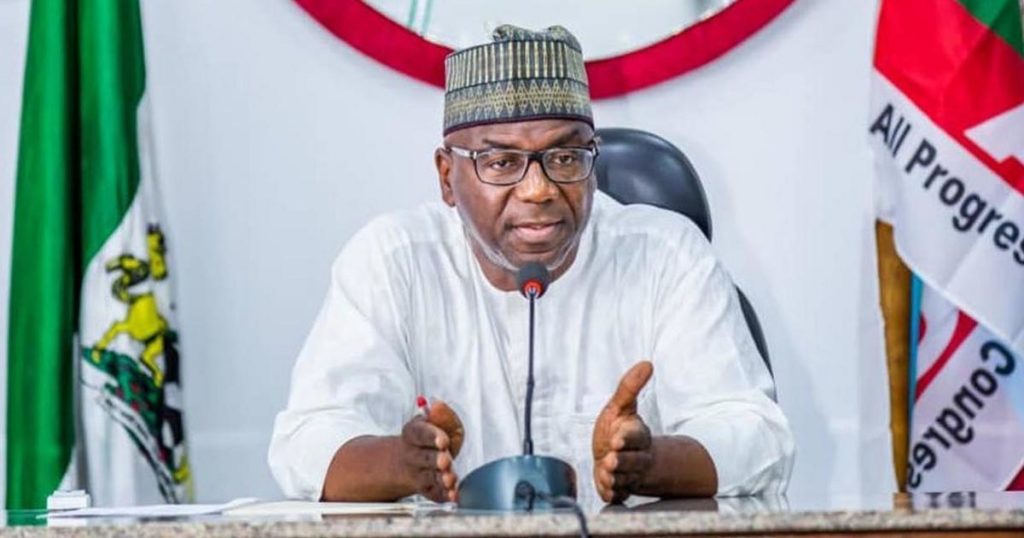
Kwara – Helping a trudging state stand firm
In a state easily incited, not by the absence of the basics which they should have access to but by religious frivolities, Governor AbdulRahman AbdulRazaq has some hard hill to climb to set the trudging state on the right path.
Kwara ticked all the wrong boxes in the World Bank ease of doing business ratings, while pensioners could hardly recall the last time they were paid. Another mark of its pitiable condition was the fact that no college graduate – having been told of the horrible state of its orientation camp – wanted to have their national youth service in Kwara. Just a few years down the lane, AbdulRazaq has changed all that by paying relevant counterpart funds which have brought back development partners, taken the state off the UBEC blacklist and taking steps to stabilise and reposition the state for growth.
Healthcare – The administration began with injecting N232m to tackle malaria, maternal death and malnutrition.
On January 19, 2019, Kwara embarrassed Nigeria with the recording of Africa’s first vaccine-derived polio case. To end this, the new government returned routine polio vaccination across the state after many years. The administration has invested hugely in counterpart funds so much that by December 2019, Kwara has received N8bn worth of vaccines, drugs, and technical support from the Federal Government and development partners who had earlier left the state when basic obligations were not met by the previous regimes.
Equipped with state-of-the-art ICU facility like defibrillators, patient monitors, ventilators, Kwara for the first time now has a five-ward air-conditioned isolation centre for infectious diseases. The administration has recently purchased five new military-grade ambulances with the capacity to manage fragile patients on the go. Apart from trainings for health workers, the administration was about the first in the country to pay mouth-watering allowances for medical workers managing COVID-19 patients. The long-dead oxygen plant has now been revived. Kwara, which used to buy oxygen for its hospitals, is today self-sufficient and can sell oxygen to neighbouring states and private hospitals.
The era of medical workers lacking decent shelter to stay at the Specialist Hospital in Sobi is gone with the renovation of 15 units of three-bedroom staff quarters at the hospital. The eye centre at the Civil Service Clinic, long comatose, is back with ultramodern facilities. Neglected since 2012, the College of Midwifery in Ilorin has been revived and re-accredited.
Back-and-spine neurosurgery Renovation is ongoing at the College of Nursing, Oke Ode, while a 300-capacity ICT centre has been erected and equipped at the College of Health Technology, Offa, where four blocks of three classrooms have been built along with a new access road. The icing on the cake is that the school has regained its accreditation – thanks to the N40m the administration released to make it happen. Along with free health insurance scheme now launched for 10,000 indigent Kwarans, the government is renovating 37 primary health centres across the state, while 70 new medical personnel, including doctors, have just been recruited to strengthen access to quality healthcare. Hold your breath: for the first time in history, Kwara is building a back-and-spine neurosurgery and neurology unit!
Agriculture – Kwara prided itself as an agrarian state. It even once constructed a large cargo shed to attract agro-processing investments. Yet the farming hinterlands in Kaiama, Baruten and elsewhere had no good roads connecting them to the market in the city. This is changing. The administration is today constructing the multi-purpose Maigida Bani road which connects farming communities in the north to those in the central for easy access to market. The Gwanara road, famous for being the scene of unfortunate attack on some political leaders, is now receiving attention – thanks to the government getting the anti-graft agencies to get the contractor back to site.
Kwara had almost lost its RAAMP III slot to Bayelsa for failing to pay N200m counterpart funds. The new administration had since paid and Kwara is back to reckoning. Kwara houses Nigeria’s first museum in Esie. But what led to the historical site was what may be called a bush path. That has changed under AbdulRahman AbdulRazaq who has tarred the road to the facility. At the moment, at least 68 township, urban roads, or mini-bridges linking major communities have either been completed or are ongoing across the state.
Education – Kwara had a few nice-sounding higher educational institutions but it lacked basic schools conducive for quality learning while attention to quality teaching was low. This is evidenced in the recent ratings the state has had in elementary education. WAEC recently slapped a N30.5m fine on several public schools over exam misconducts under the past regime. The new administration is rehabilitating 31 schools across the state, seven of which are undergoing complete overhaul. The seven are Oro Grammar School; Government Unity Secondary School, Kaiama; Government Secondary School Share; Patigi Secondary School; Government High School Ilorin; Ilorin Grammar School (awarded); and Government Secondary School Lafiagi. These renovation works are to gulp N1.7bn. Apart from paying the WAEC fine, the administration has begun gradual retraining of teachers, including sponsorship of their participation in the UNESCO programme. Having taken Kwara off the UBEC blacklist, the administration has begun the long-drawn processes for accessing the over N7bn trapped there. Indeed, the 2020 budget contains N2.3bn meant to access part of the funds, underscoring the passion of the administration for basic education.
Computers with internet access Free exercise books were produced for school children even as exchange students are now being catered for. Many classrooms at the school of special needs have been renovated, with teaching aids, special software and computers with internet access made available to the children there. Also, 10 more staff, including teachers, were newly engaged. The administration has integrated the 26 teachers at the CoE Model Primary School Ilorin into its payroll, ending years of crisis at the school. The state library complex has been rehabilitated, a part of it equipped with e-learning facilities powered with 24-hour solar energy.
Teachers across the COEs have returned to the classroom after the new administration paid their arrears worth N700m. Like the school of midwifery, courses at the COE (Technical) Lafiagi and College of Arabic and Islamic Legal Studies Ilorin have now been re-accredited. Monthly subventions have been restored to the institutions after many years. For the first time, bursaries and scholarships were paid through transparent electronic windows to rule out the humongous fraud which recently landed several officials in court. The inherited N19.5m salary arrears at the International Vocational, Technical and Entrepreneurship College, IVTEC, have been settled.
Basic amenities, infrastructure with five water works fixed and some others at various stages of repair, clean potable water is back to Kwara households at stable intervals. At least 402 boreholes were rehabilitated in the early days of the government, while 14 more have just been dug in Baruten where water scarcity had been a menace. The boreholes will complement the ongoing Yashikira water works. The civil service is at its best in two decades. The new administration has not only restored running costs across the MDAs, 27 new vehicles were also recently purchased to aid mobility of workers while modern computers were given to them. For the first time in decades, the civil servants escaped political victimisation. The permanent secretaries inherited by the new government are just gradually leaving the service in batches – a far cry from the instant sack, demotion, and humiliation their predecessors suffered in the past. The new government constantly sends out the right signal that a new Kwara has arrived. The NYSC camp, which was no better than a penitentiary, has undergone complete rehabilitation and equipped with basic amenities.
All outstanding allowances to judicial officers, some dating back to 2014, have been paid by the administration. Its expansive waterlogged compound now paved with modern interlocking tiles, the administration has undertaken a complete re-modelling of the ‘Centre Igboro’ Area Court in Ilorin – more than 30 years after it was abandoned.
For the first time since it was constructed during military rule, the administration has re-roofed the State High Court complex while the Sango Magistrate Court, gutted by fire over four years ago, has been reconstructed. The 2020 budget, all things being equal, made provisions for the commencement of the Ministry of Justice’s building. With one of the best arable lands around, the governor believes Kwara holds the ace in agriculture. He has not only paid N350m to enroll the state in the FADAMA III scheme, Kwara has keyed into the National Livestock Transformation Plan which is designed to ensure food security and end the perennial deadly clashes between herders and farmers.
The government is offering the right attitude to make the upcoming BUA sugar plantation in Lafiagi a reality. Equipped with tractors, planters, and boom-sprayers that have just been repaired, the administration has recently flagged off the cropping season with professional display of modern farming techniques to create awareness about mechanised farming in the state.
Before then, for the first time in years, the government established various nurseries which have raised 50,000 cocoa seedlings, 10,000 cashew seedlings, 200 citrus seedlings, 3,000 oil palm seedlings, 200 paw-paw seedlings, and 200 guava seedlings. Apart from renovating the juvenile correctional home, the children reception centre, and paying counterpart funds for the World Bank-funded community and social development projects, CSDP, the administration has recently launched its social investment programme, KWASIP, which targets the aged, the unemployed, petty traders, and little children who would be fed in school.
Confronted by years of pre-bendal politics and governance hinged on grandstanding and propaganda, the administration is indeed punching above its weight in making Kwara to work again. But much more important is the fact that AbdulRazaq is redefining governance, giving hope to the disadvantaged, empowering local artisans, redistributing wealth, and calling global attention to Kwara with his bold enlistment of women in the decision-making process in line with the Sustainable Development Goals, SDGs 5 – a practical way to inspire the girl-child to a new height. His female cabinet pick is the highest ever on the African continent. With just one year gone in a four-year mandate, it is clear that the people of the state made the right choice and are better off sticking with a man who walks his talk about restoring the glory of Kwara State and making the masses the centerpiece of his administration.
Nasarawa: Straddling uncertainty on all sides
Nasarawa State should have come a long way from the days of Abdullahi Adamu, Ahmed Wadada and Al Makura. Under Engr. Abdullahi Sule, has it?
Agriculture – The Nasarawa State Government and the Federal Ministry of Agriculture and Rural Development went into a partnership to access 100, 000 hectares of land for rice cultivation in the state. The Lower Benue River Basin Development Authority has been approached to make available land in one of its project sites located in Tide, Akwanga local government area for this purpose.
The scheme will help the state utilize its irrigation farming potentials, using the Doma Dam for the project which will be financed by the Federal Government 100 per cent.
Tourism & Infrastructure – As part of plans to boost its long-moribund tourism sector, the state government and the Federal Ministry of Water Resources have reached an agreement of over N8bn for the construction of the Farin Ruwa Dam, as well as the Sisin Baki/Farin Ruwa Road.
Hopefully, the long-touted project will see the light of day.
Transport – In a bid to revive the Nasarawa Transport Service, the state government, Peugeot Automobile Nigeria (PAN) and Keystone Bank have entered into an agreement. The plan is to begin with the purchase of, at least, 30 vehicles – two for each of the 13 local government areas and the remainder for long distance travel.
The new project will coincide with the launch of the Lafia Mega Bus Terminal, which is still under construction.
While Kwara, Benue and Kogi may not be getting it right entirely, Nasarawa’s greatest challenge has been in the education sector, where it has spent the sum of N18million for the last 14 years but children still sit on the ground to learn (is that not the case all over the nation, though?), there are no amenities to match the growing population is schools etc. While schools in Lafia seem to get some attention, the ones in Keffi, Mararaba Udegge, Kokona, Awe, Obi, Akwanga and other locales spread across the state are in various states of disrepair.
Sule’s administration can easily claim – as all administrations are wont to – that these failings are not his making (true, the previous governor, famous for his ‘Ta Al’ mantra made a show of ‘fixing all the schools’ only for the rot to re-emerge) but the onus rests on him, for posterity’s sake, to lift education in the state.
The state has actively contributed its share and duly withdrawn from the UBE fund, but it does seem as if those funds are failing to hit their targets. Will they? When?
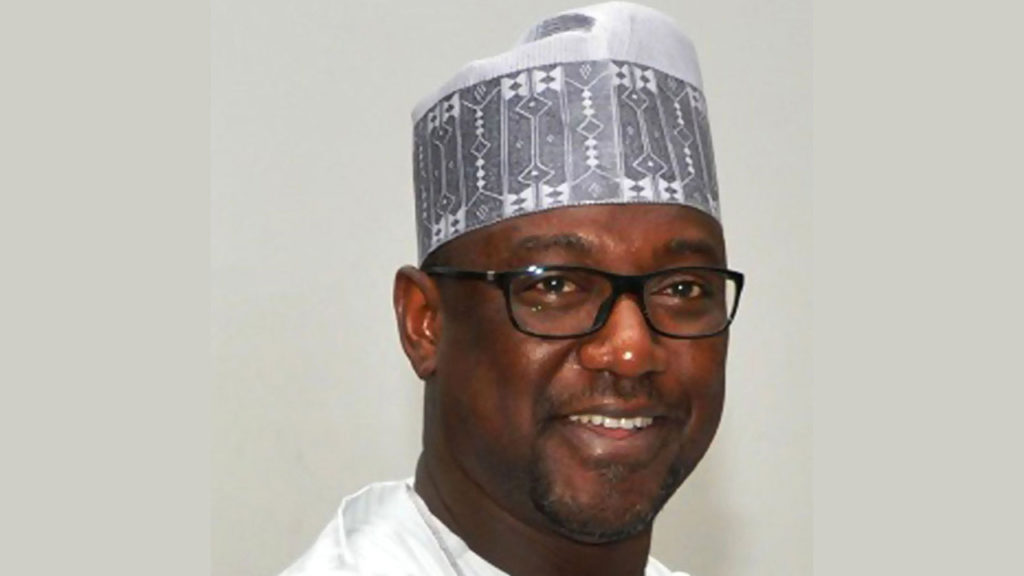
Niger State: Another state under the lights
Niger is one state a lot has been expected. How has ‘Power State’ fared?
Upon assumption of office, Governor Abubakar Sani Bello, adopted his sectors of focus as education, agriculture, economic empowerment and health, refused to pay N800million naira variation which was outside initial agreement on one of the projects he inherited, commitment to pay counterpart funding of all the developmental partners e.g. UNICEF, BOI, UBE, dragging back contractors to complete abandoned projects etc,.
Agriculture/Economic empowerment – Besides partnering with a foreign investor to create 4,000 jobs from rice production in Borgu and Bida local government areas, the Bello administration convened a board meeting of the Badeggi Rice Mill to kick-start the process of creating 15,000 jobs from the mill and the value chain, approved the expansion and funding for the Tagwai Livestock Farm, as well as initiating partnership with Notore and others to create thousands of jobs in agriculture.
Education – Development, renovation, equipping and designation of two secondary schools as ‘centres of excellence’ in each senatorial district, approval for the construction of two primary schools to satisfy UNESCO standard in each local government area, introduction of foreign scholarship for students with 8 distinctions in their exit examinations, purchase of Hilux trucks and motorcycles for school supervisors, directing the education ministry to give comprehensive training to teachers, initiating partnership with foreign nations (e.g. Singapore) to help develop our education etc,.
Health – The governor’s wife, a surgeon, has dedicated herself to working in public hospitals and has performed a number of surgeries till date.
In addition, as part of efforts to make primary health accessible in the state, a hospital in Suleja (which has the markings to be the second trauma centre in the North) was donated to the state government, attracting the donation of primary healthcare centre in Minna by PZ Cussons, constituting a committee on abattoirs to sanitize meat production in the state, commissioning of computerised medical storage facility donated by USAID and putting his feet down to ensure efficient primary healthcare which accounts for 80 per cent of our healthcare needs.
Water sector – Initiating a major reform in water sector, invitation of BiWater and Impresit Bakolori to come fix the waterworks they originally built, resuscitation of abandoned state-wide water projects started by late former Governor Kure, repair works at Bosso Water Treatment Plant, sinking of industrial boreholes as a stop-gap measure to serve Bosso Community, sinking of boreholes at strategic rural areas in dire need of water etc.
Infrastructure – Construction of Sabon-Gari – UK Bello road, construction of Kuta road, construction of Bomas/Obasanjo road, construction of Bosso/Yahaya Bawa Bosso road, construction of Tegina township road, approval of the construction of a trailer park in Maje, approval for the continuation of 9-storey 5-star hotel, approval for the completion of legislators’ quarters, approval for the completion of the commissioners’ quarters, approval for the completion of the children’s wing of the general hospital, reconstruction of houses destroyed by windstorm in Kuta, reconstruction of bridges destroyed by flood in Bida etc,.
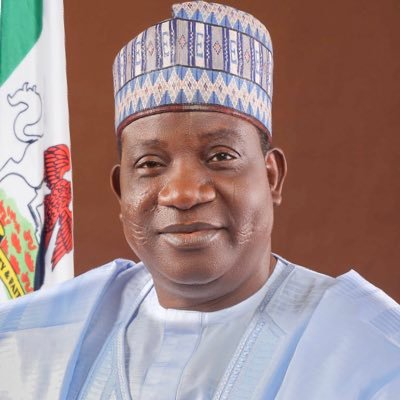
Plateau: 8 years of Lalong’s subsistence
Governor Simon Bako Lalong deviated from that norm and became a trailblazer in continuing with the good policies initiated by his predecessors, paving the way for his acceptability and endorsement for a second term in office.
To what extent, though, has Lalong fulfilled his promises?
Peace, Security and Good Governance – Lalong inherited a myriad of daunting problems chief of which was insecurity and lack of peace in the state. Governor Lalong literarily hit the ground running by tackling the hydra-headed problem of insecurity which has the capacity to cripple all forms of infrastructural and human development in any society. The attacks on villages and some communities in the state with the attendant loss of hundreds of lives and destruction of properties worth billions of naira had become a nightmare for everyone and a quick and enduring solution was needed to nip the situation in the bud.
True to his words, Lalong liaised with the traditional institutions and the people and brought them to a roundtable to resolve their differences and give peace a chance. He went on to set up the Plateau Peace Building Agency (PPBA), the first of its kind in Nigeria. Headed by Joseph Lengmang, an erudite and articulate peacemaker, the agency facilitates conflict resolution and is working round the clock in partnership with international organizations, traditional rulers, market women, youth groups, tribal groups and security agencies to bring about the much-cherished peace that Plateau State once enjoyed.
The peace-broking activities of the PPBA along with that of well-meaning non-governmental organizations (NGOs) have in no small measure strengthened the peaceful coexistence among communities in the state and, although there are still pockets of attack here and there, people in the state can be said to be living in relative peace with one another, a far cry from what obtained prior to the coming of Governor Lalong. The state is slowly but steadily regaining its name as the Home of Peace and Tourism.
Needless saying that this feat could not have been achieved without good governance, which is one of the cardinal points of the Lalong administration.
Human Capital Development and Social Welfare – In this area, the Lalong government has not only talked, but has walked the talk. Take for instance the establishment of the Plateau State Microfinance and Development Agency (PLASMEDA) which his headed by Haggai Gutap which has in partnership with SMEDAN (Small and Medium-Scale Enterprises Development Agency of Nigeria) and GIZ International trained over 3,000 women and youths in numerous skills and provided soft loans to about 7,000 people.
The activities of PLASMEDA have attracted attention within and outside the borders of Plateau State as the headquarters of Nexim Bank, formerly in Benue State, is being relocated to the state. Again, the Bank of Industry (BoI) has been partnering with PLASMEDA to grant loans to the public through the GEEP programme. Many people have benefitted from the programme and it is boosting the internally generated revenue (IGR) of the state.
In the area of welfare of the people, government has over the past four years ensured prompt payment of workers’ salaries and pensioners’ pensions each month. The regularization of the employment of some staff has been done or is about to be done in such places as the Sports Council, the Plateau State Internal Revenue Service (PSIRS), the Ministry of Lands and Survey as well as the Plateau Radio Television Corporation (PRTVC).
The State Universal Basic Education Board (SUBEB) only recently recruited over 4,000 primary school teachers and over 834 secondary school teachers to boost the staff strength of the education sector in the state. Meanwhile, renovation and construction of primary school classrooms in all the 17 local government areas of the state have either been completed or are ongoing.
The Plateau State University in Bokkos has been given a new lease of life with the reconstitution of the governing council headed by Prof. Attahiru Jega as Pro-Chancellor. Other tertiary institutions in the state are not left out as they are receiving adequate attention of the Lalong administration.
Agriculture and Rural Development – Not one to play politics when it comes to boosting agriculture by providing the enabling environment for increased food production to feed the state and have enough to export, Governor Lalong holds the agricultural sector close to his heart. The reason for the governor’s passion for agriculture is not far-fetched. Farming is the mainstay of majority of the people of Plateau and Lalong has been known to be in the forefront of those agitating for increased agricultural activities countrywide as a means of ameliorating or cushioning the effects of the drop in crude oil prices in the international market, on which the country is solely dependent.
Consequently, apart from revitalizing the moribund Fertilizer Blending Plant in Bokkos by the state government, the Panyam Fish Farm is also coming alive through a public-private partnership (PPP). It is expected that the farm will have a training wing where students from all over the country can come for industrial training.
To feed the agricultural sector with competent and well-trained staff, accreditation of courses at the Garkawa College of Agriculture is being facilitated while soft loans are being given to farmers to boost their productivity.
Entrepreneurship and Industrialization – judging by the government’s efforts in these areas, Lalong is set to strip Plateau of the unflattering nickname of ‘civil service state’. Plateau is blessed with many mineral resources and raw materials that can be harnessed and processed by industries for local consumption and export. If done, this has the twin advantage of not only boosting the state’s revenue base but, most importantly, providing much-needed employment to most unemployed people.
It is in consequence of the foregoing that the Rescue Administration under the leadership of Governor Lalong has revived and revamped the moribund Highland Bottling Company which has since gone into the production of bottled and sachet water while arrangements are in top gear for the company to start producing bottled soft drinks in no distant time. Similarly, the Jos International Breweries (JIB), which had seen better days, is to be activated. Government is having talks with a German company for a possible PPP arrangement to ensure that the brewery comes back to life.
The decision by the Lalong administration to reconstruct the burnt Jos Main Market is a bold one and has been widely acclaimed by people far and near. The pride of Plateau State, the Jos Main Market was before its destruction by bomb in the wake of the 2001 in crises in 2002 which engulfed the state, particularly Jos, the capital, a beehive of activities providing livelihood to thousands of people and was a major revenue-earner for the state.
Already the destroyed parts of the market have been brought down and it is expected that work on the reconstruction shall commence soon.
Physical Infrastructure and Environment – Apart from completing projects abandoned mid-way by the immediate past administration in the state, Governor Lalong has a long list of new projects to his credit. It is worthy of note that his decision to complete uncompleted projects which he inherited is a trait rarely seen among the ruling class in Nigeria, who prefer to distance themselves from projects initiated by their predecessors, but rather initiate their own in order to stamp their authority.
Some of the projects completed under Lalong’s watch include the Marraraban Jama’a-Secretariat road, Secretariat Junction Flyover, the Miango-Rafiki roads, as well as the Lowcost-Rantya road and roundabout. These are projects started by the last administration but which were not completed.
The Lalong government has on its own initiated several new projects, some of them completed and others ongoing. There are also the much-talked-about Lalong Legacy Projects dotted along the local government areas of the state.
We can go on and on listing the successes recorded by Governor Simon Bako Lalong in the five-point policy thrust on which his government is anchored. Suffice it to say that time and space will not allow us to do so. Little wonder then that the people of Plateau State gave the governor another mandate to preside over their affairs for the next four years and to take them and their state to the Next Level.



